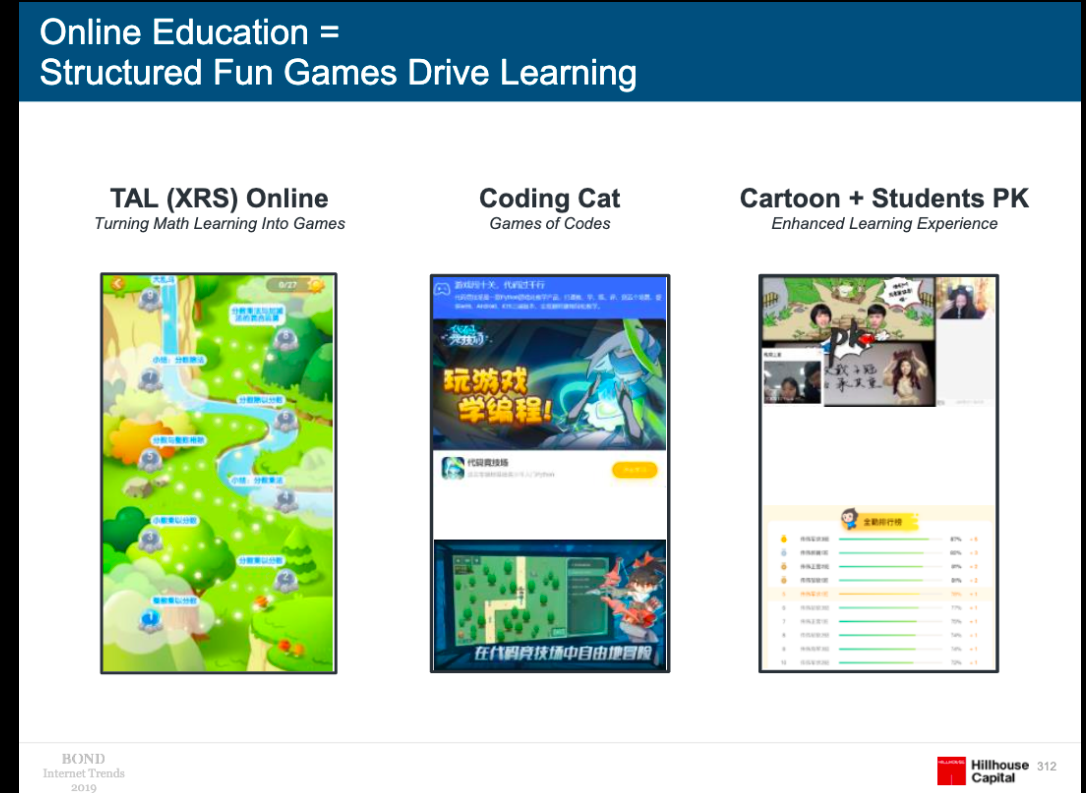You have /5 articles left.
Sign up for a free account or log in.
In an alternate universe, Mary Meeker’s annual Internet Trend Report focuses solely on online education.
Actually, this year’s report was full of slides on online learning.
Here are 33 questions on online education, inspired by Meeker’s 2019 333 slide presentation.
Q1. Are there close to 4 billion potential online global learners?
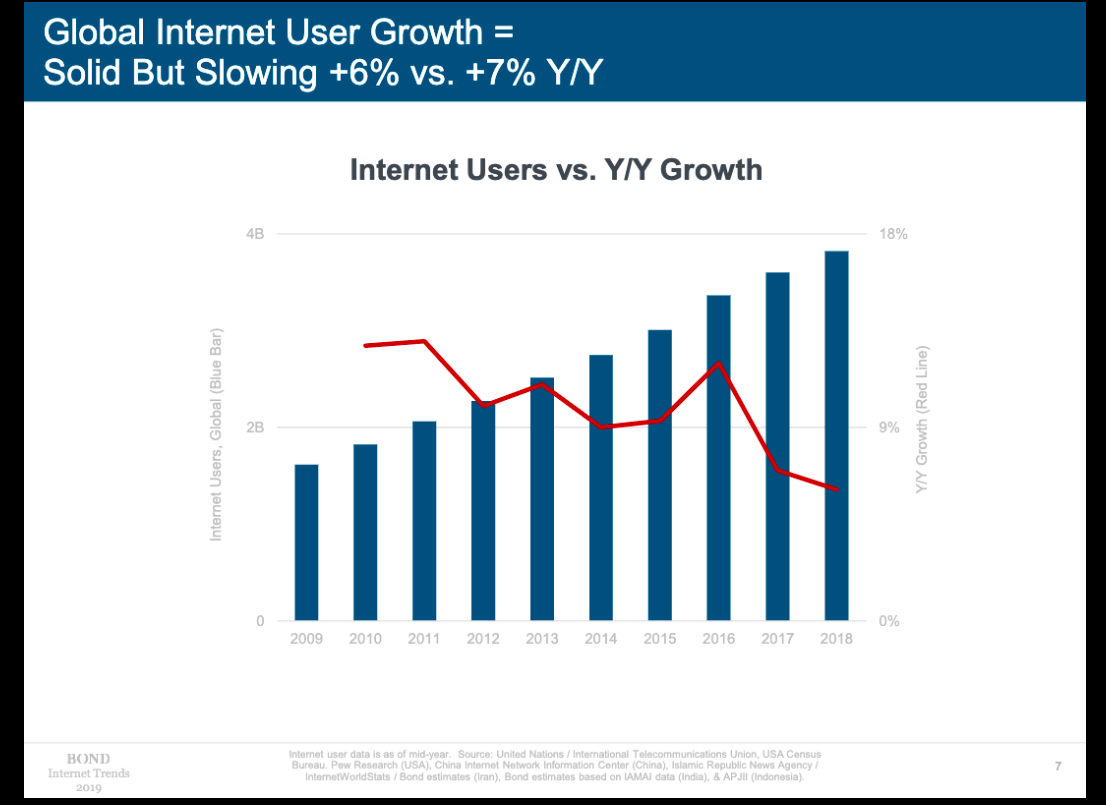
Q2. Is half the world’s population the market for online education?
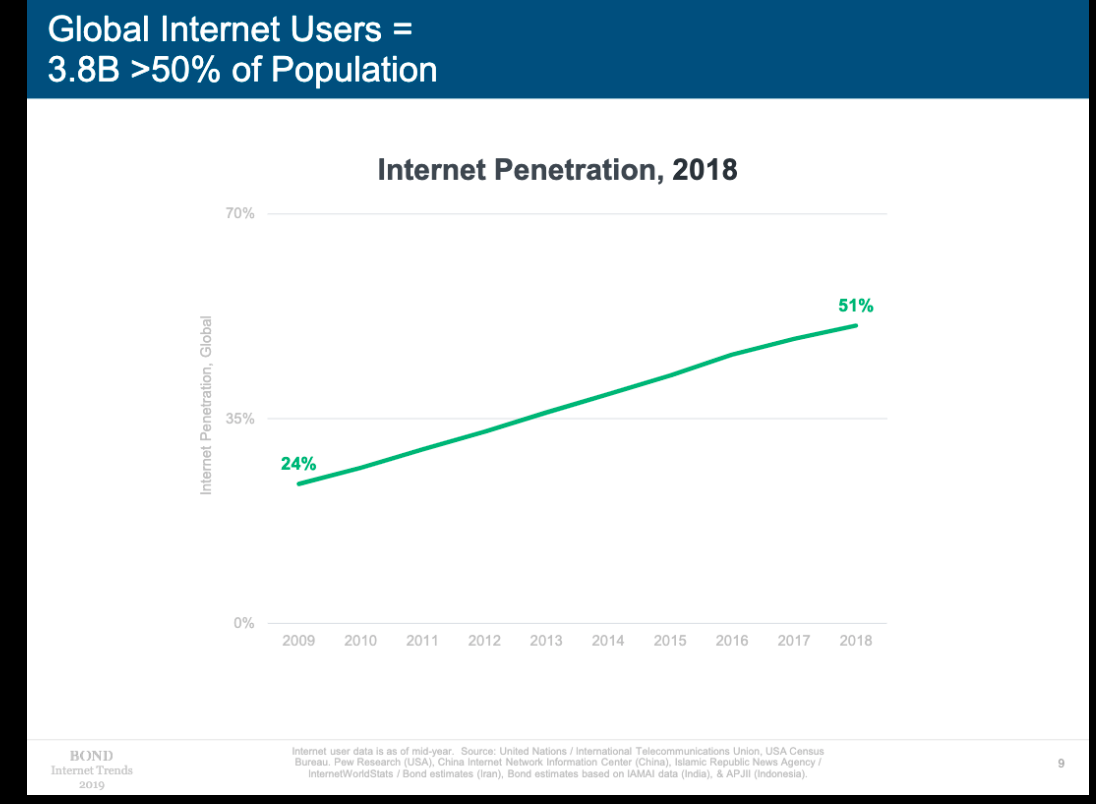
Q3. Should we be focusing on designing online program for Asia?

Q4. What are online education numbers and revenues as a percent of residential education, and is online education following the same trajectory as e-commerce?

Q5. Why does it seem as if mobile education is not keeping pace with mobile advertising?
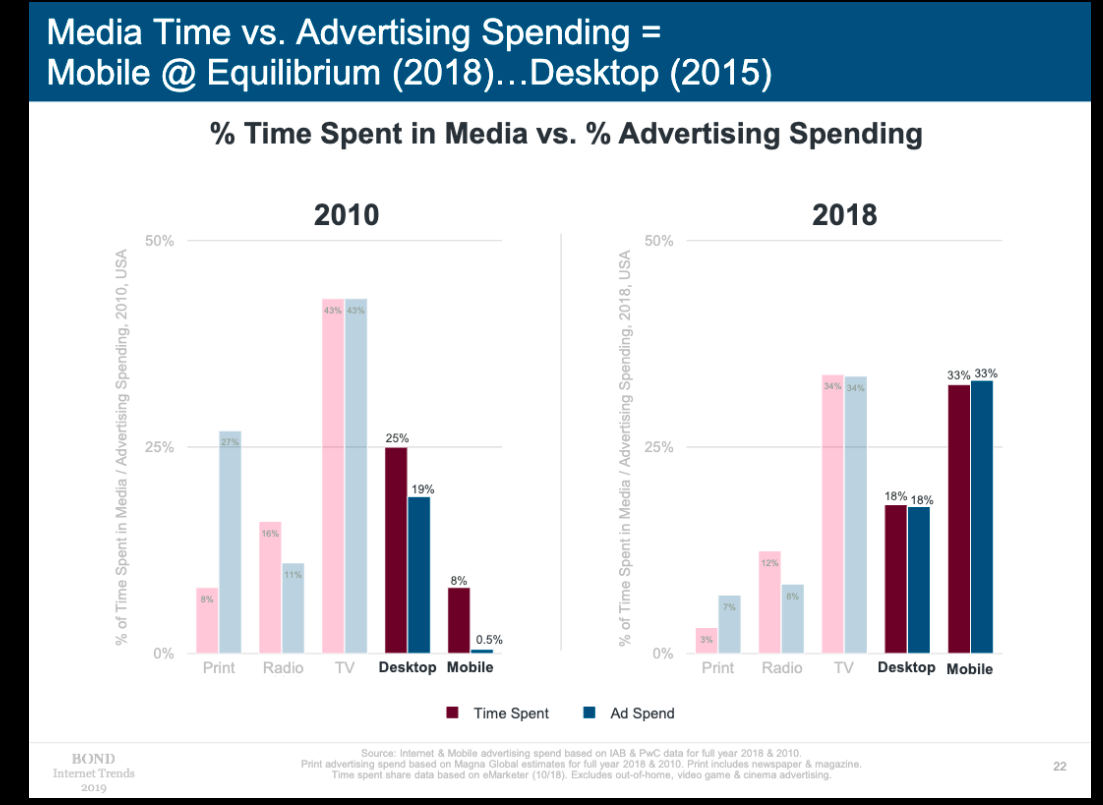
Q6. What can online education learn from Stitch Fix? Maybe that there is a way to personalization at scale, if real humans are utilized in smarter ways?
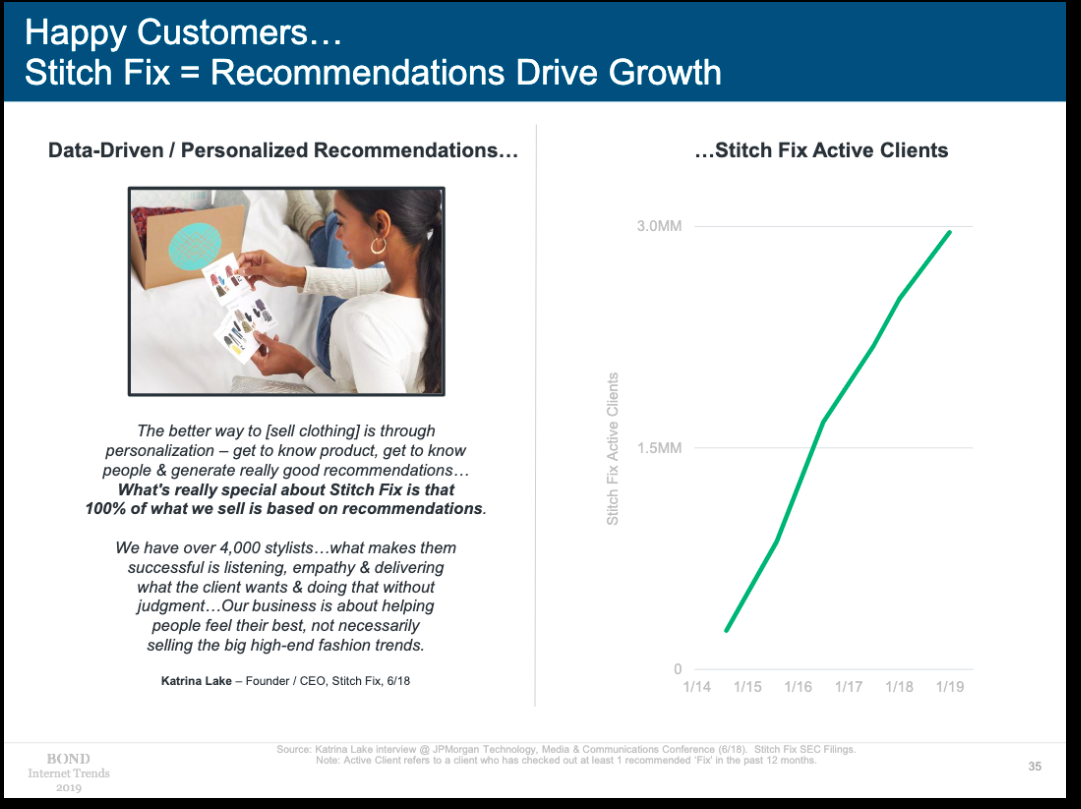
Q7. Is it crazy to think that some of those hours on mobile devices should be spent on learning and credentialing?
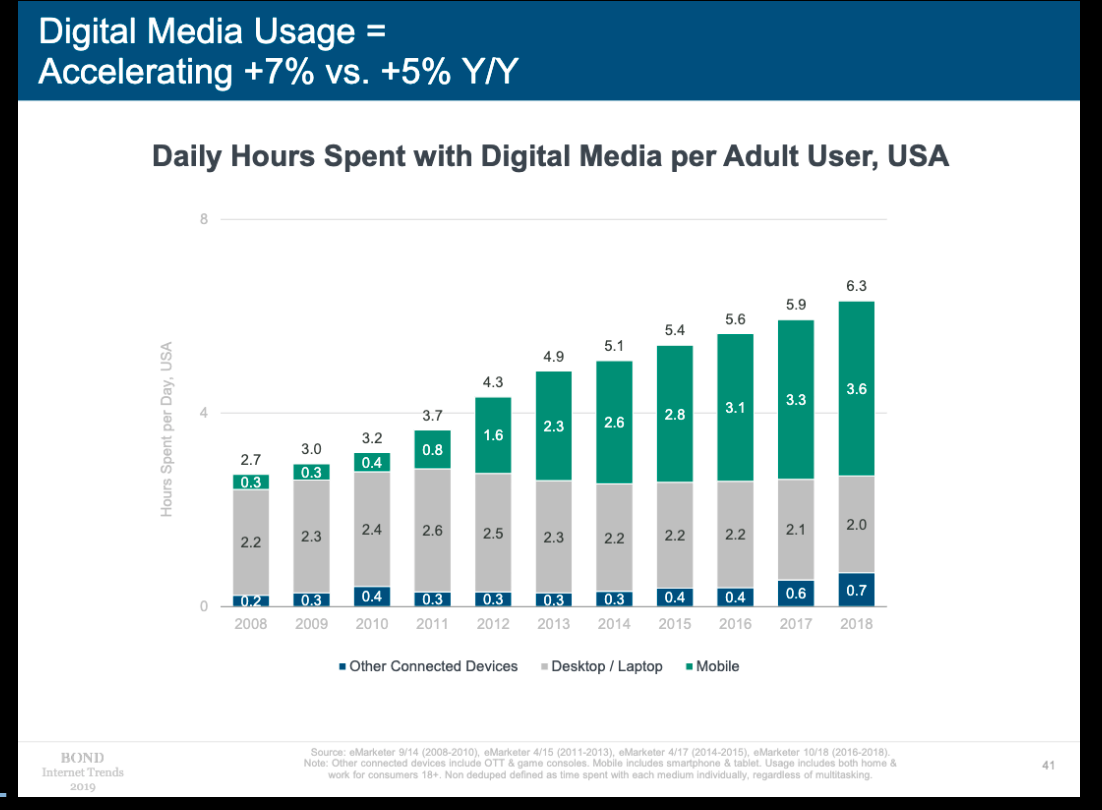
Q8. If podcasts can grow so fast, why not some combination of coursecasts or learncasts or credentialcasts (3 words that I just made up)?

Q9. Has anyone really tried to gamify an alternative credential online program?
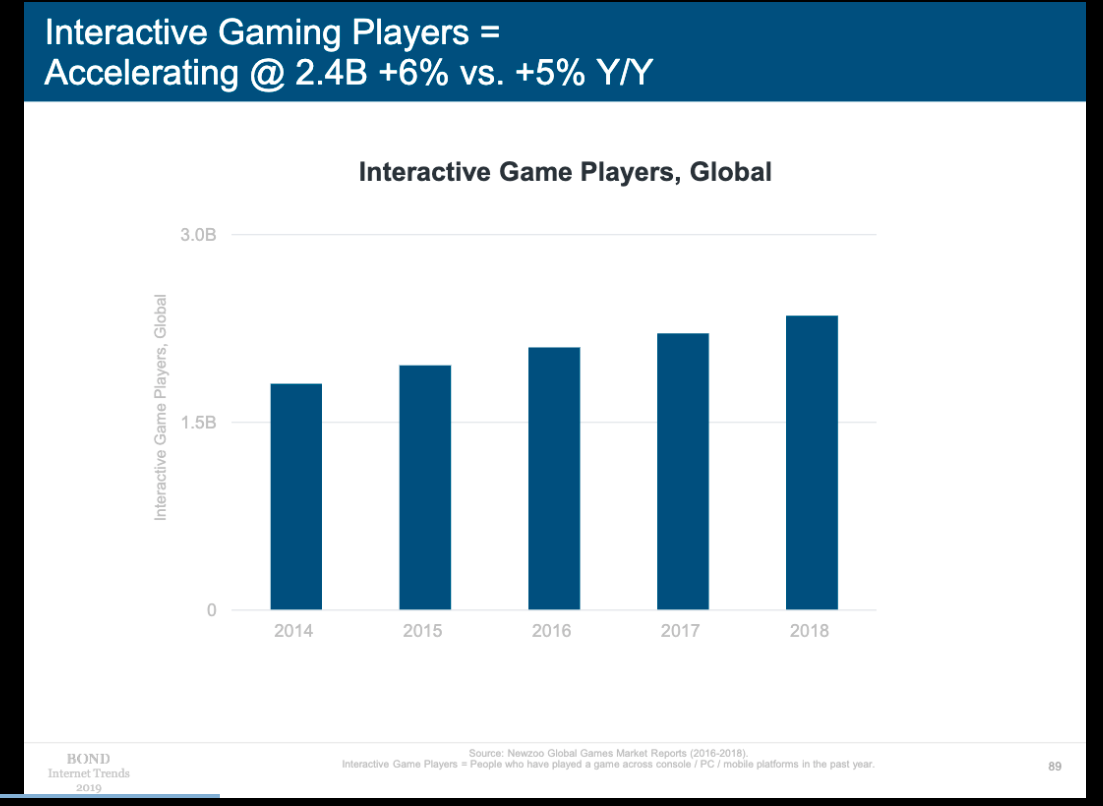
Q10. How much has higher education contributed to the growth of Zoom?

Q11. Might we add that anyone working at the intersection of higher ed and technology is also drinking from a firehouse of demands, changes, and challenges?
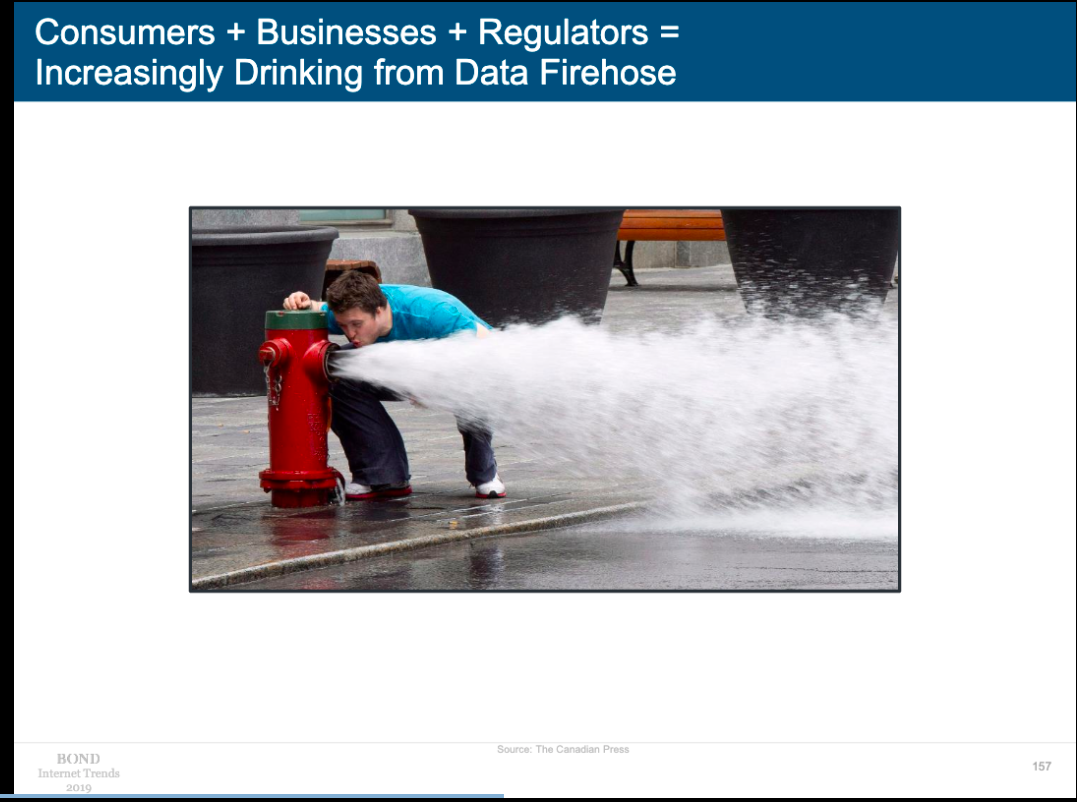
Q12. Might the bad behavior that we see online cause many to want to turn off all of our devices and technologies when teaching and learning?
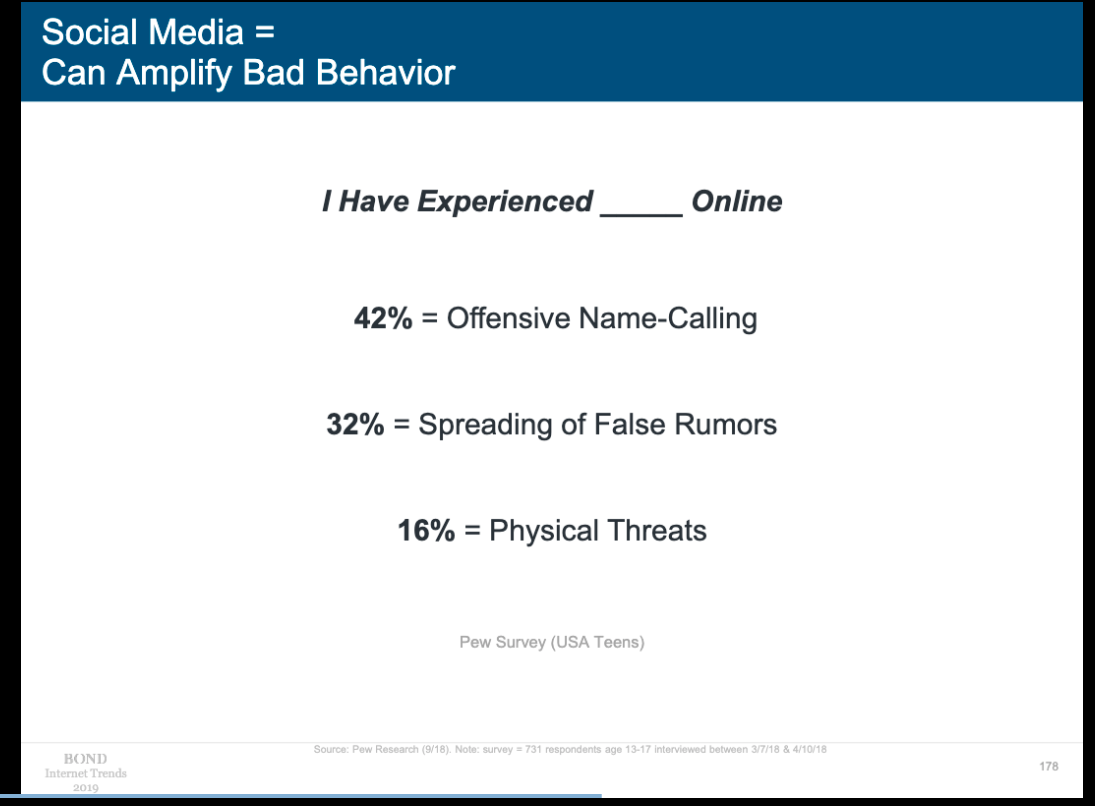
Q13. When will the strong job market reverse, driving demand for online graduate degrees?
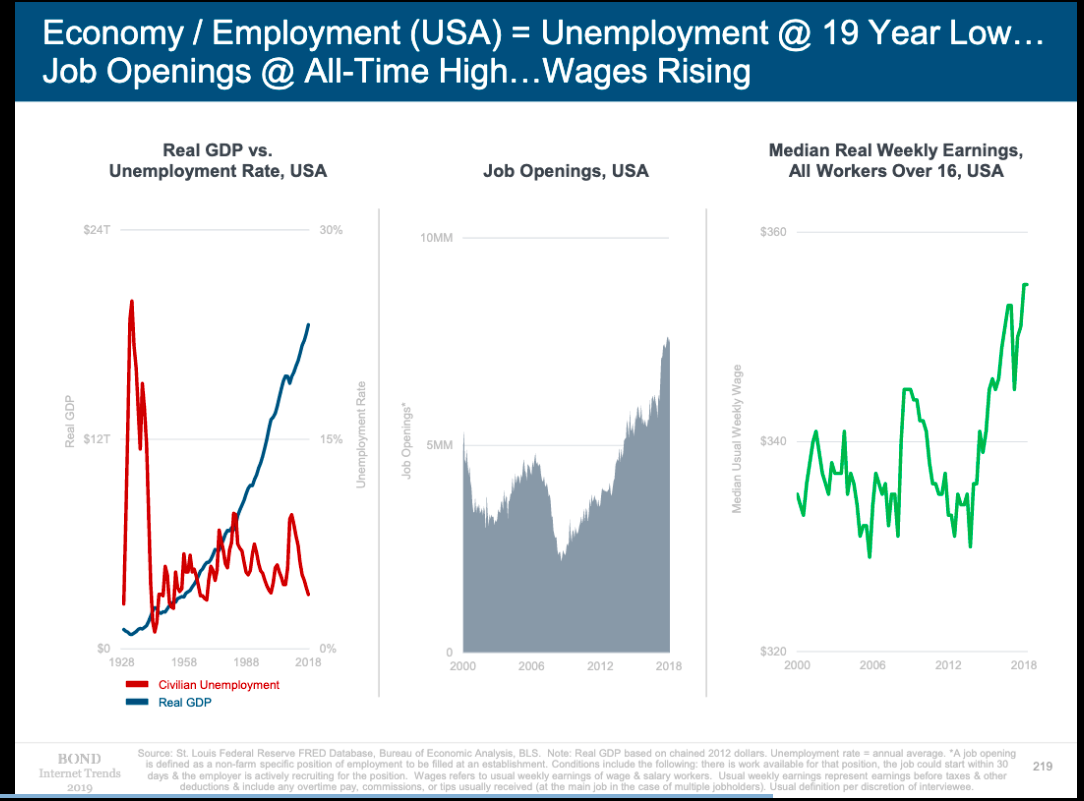
Q14. Why is remote work growing more slowly than remote learning?
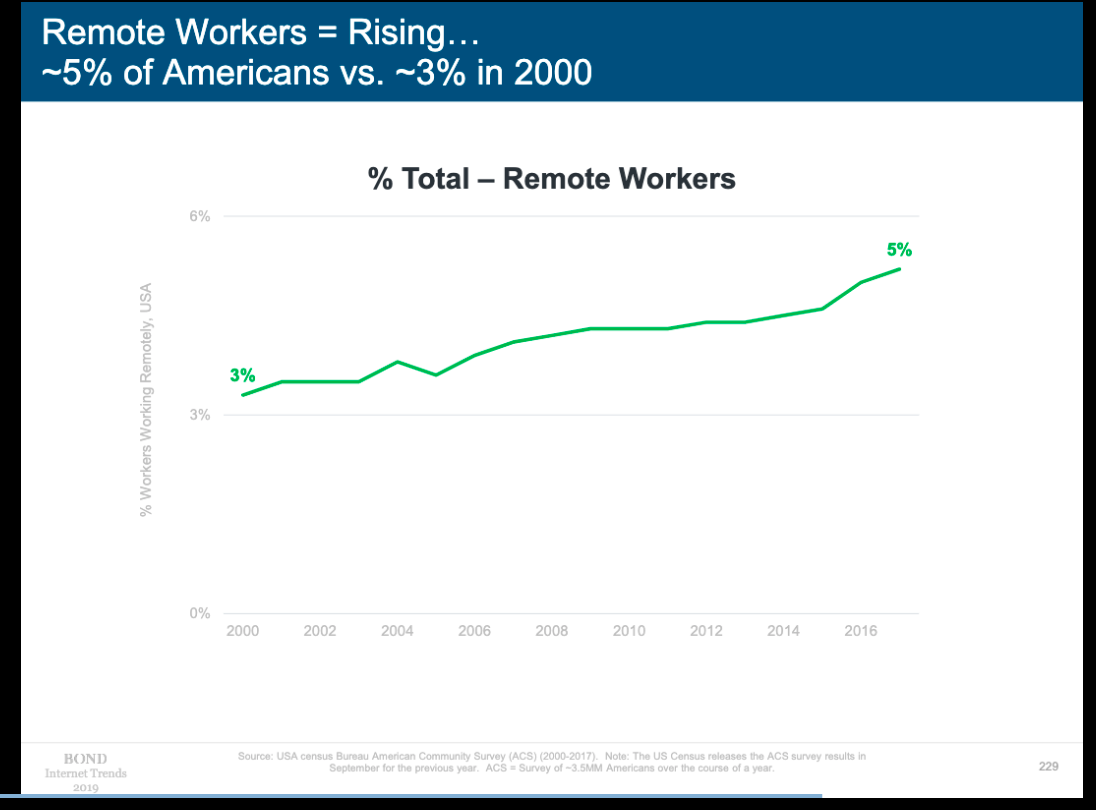
Q15. Are the benefits of online education similar to those of remote work?
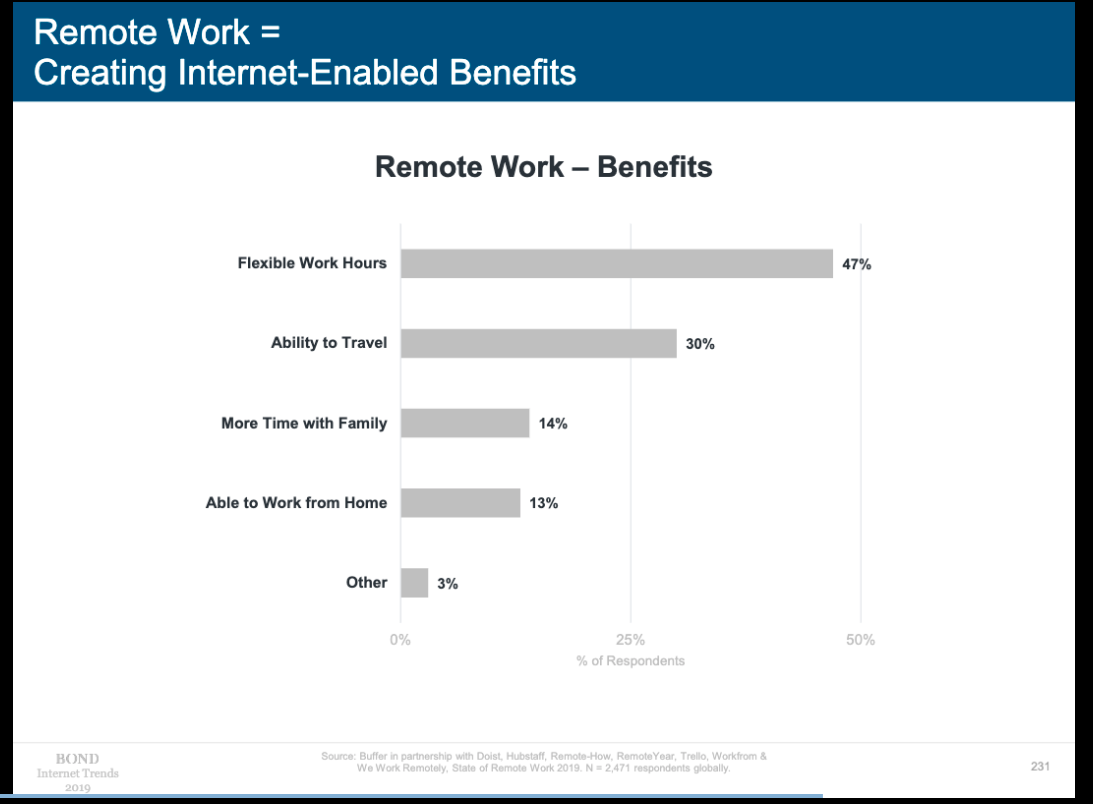
Q16. Should this slide say, “Learn by Zoom?”
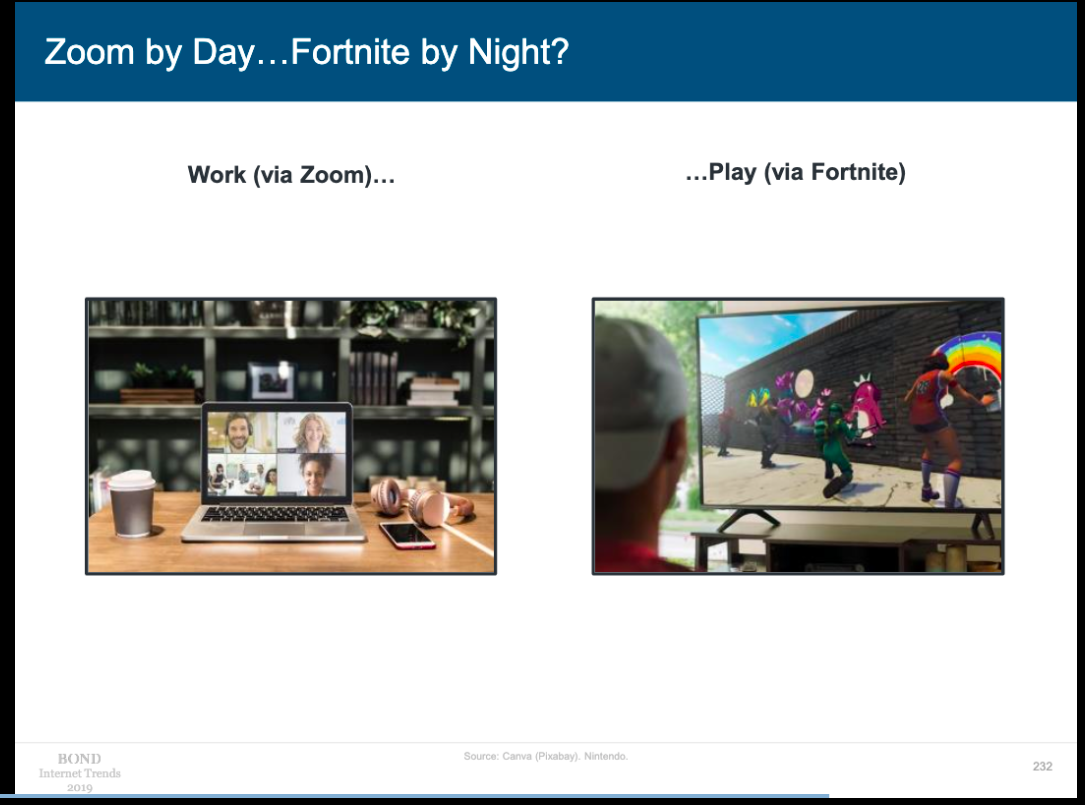
Q17. Does this slide also keep you up at night?
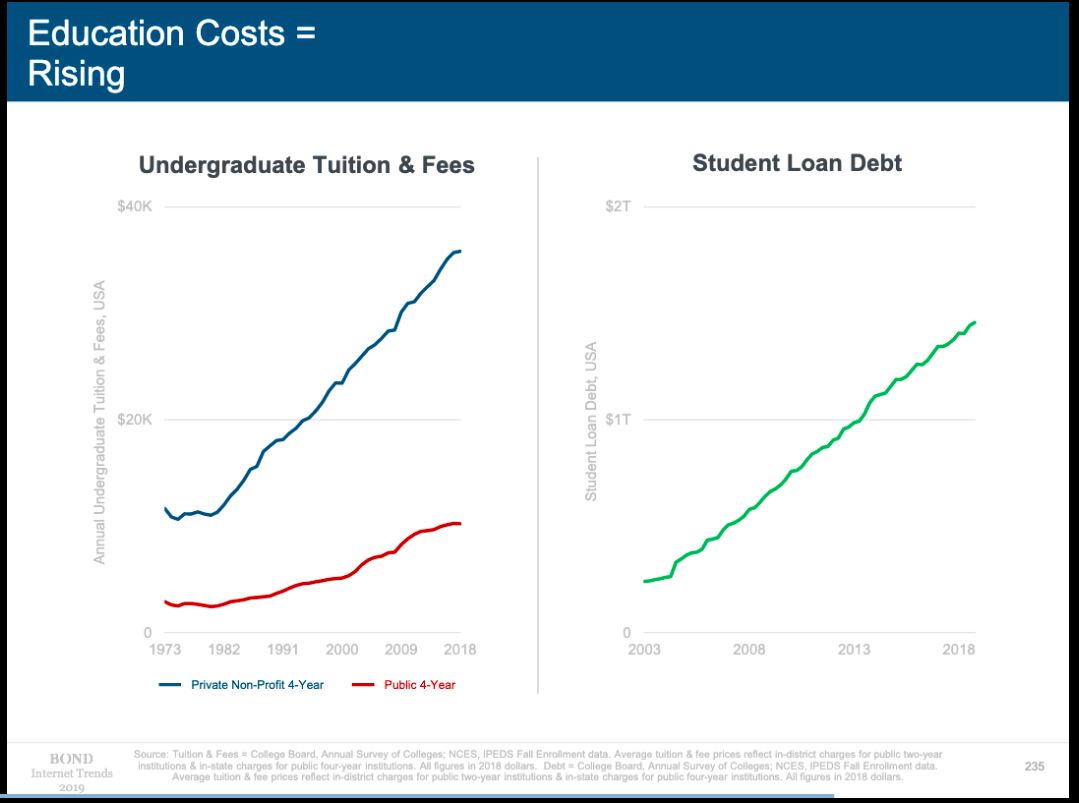
Q18. Why did Meeker wait to slide 237 to show the relative growth of online education?
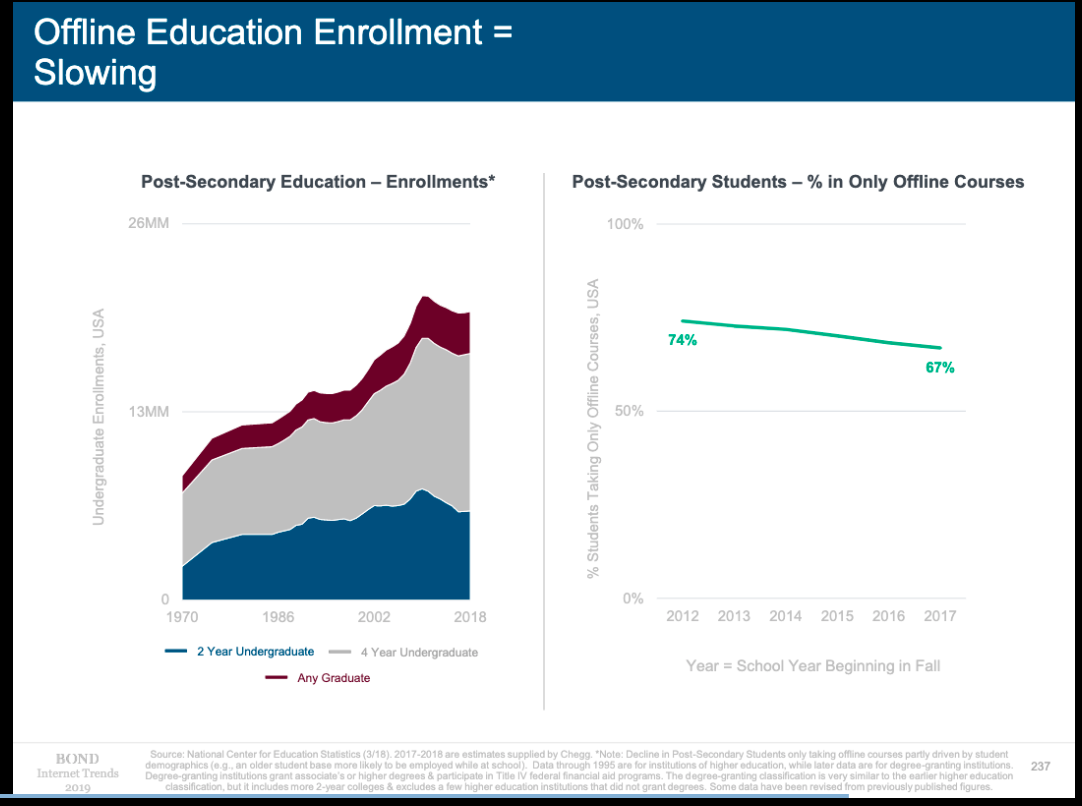
Q19. Did you know that public online enrollment is higher than private?
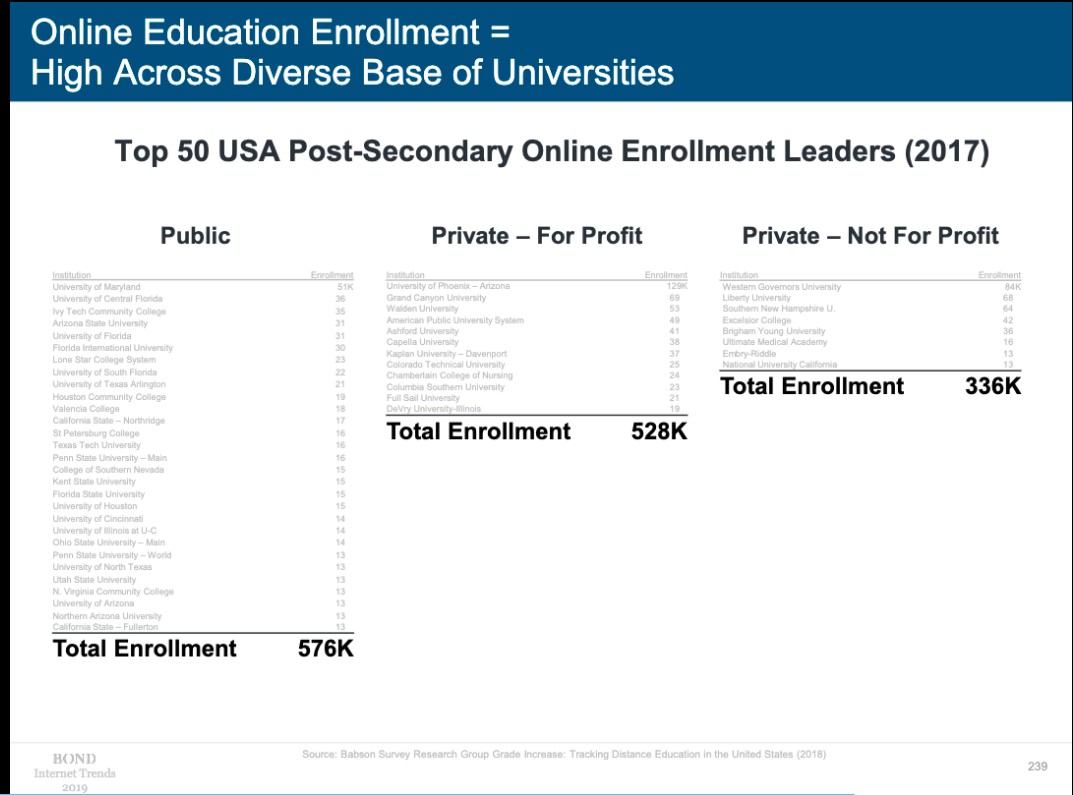
Q20. How should we think about MOOCs given the platform providers pivot to degrees? And when will Amazon, Google, or Microsoft buy Coursera? And if that should happen, what would that mean for all the schools listed in this slide?

Q21. Is anything in higher education growing as quickly as the online program management (OPM) industry?
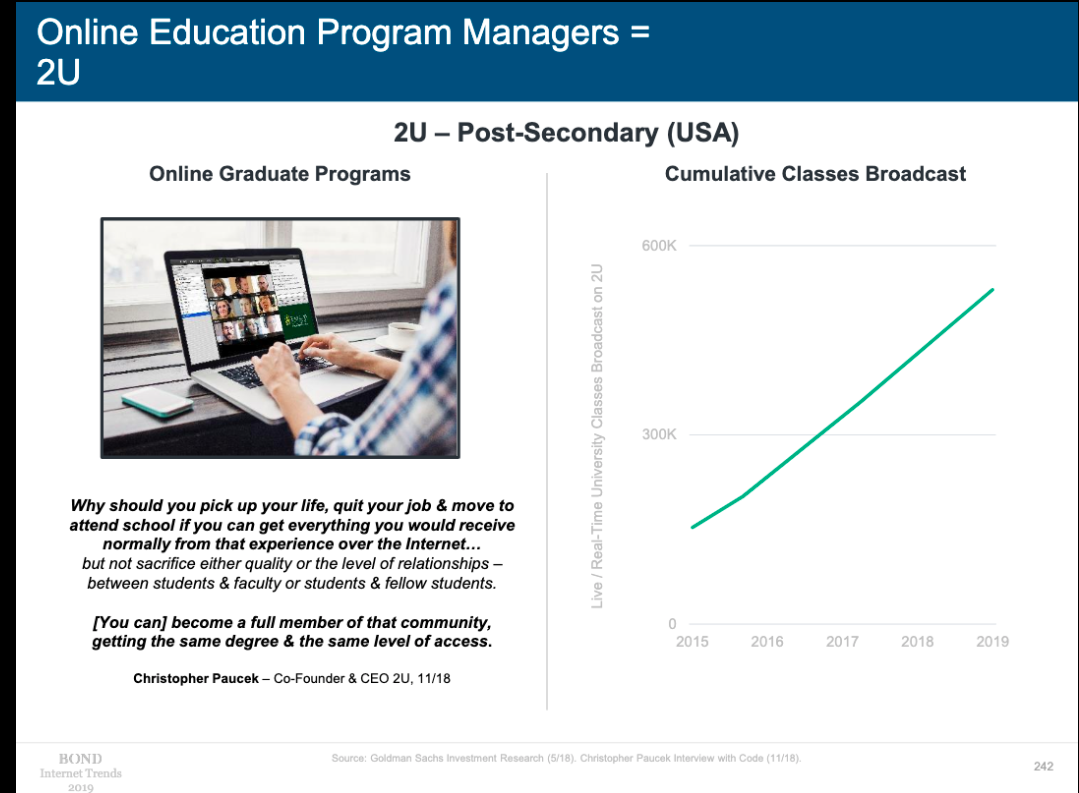
Q22. Why is the for-profit Coursera growing so quickly? And how many learners will be on the Coursera platform by 2025?
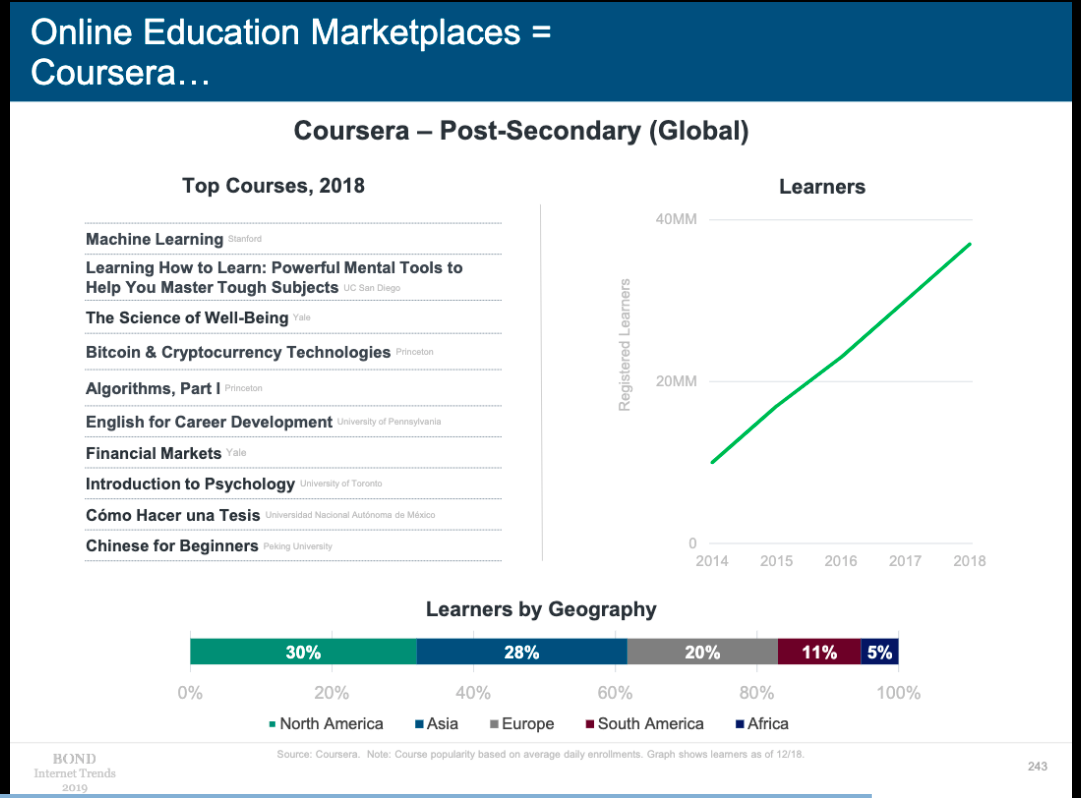
Q23. Why is that digital learning people seem to talk so little about Udemy? Are you talking about Udemy?
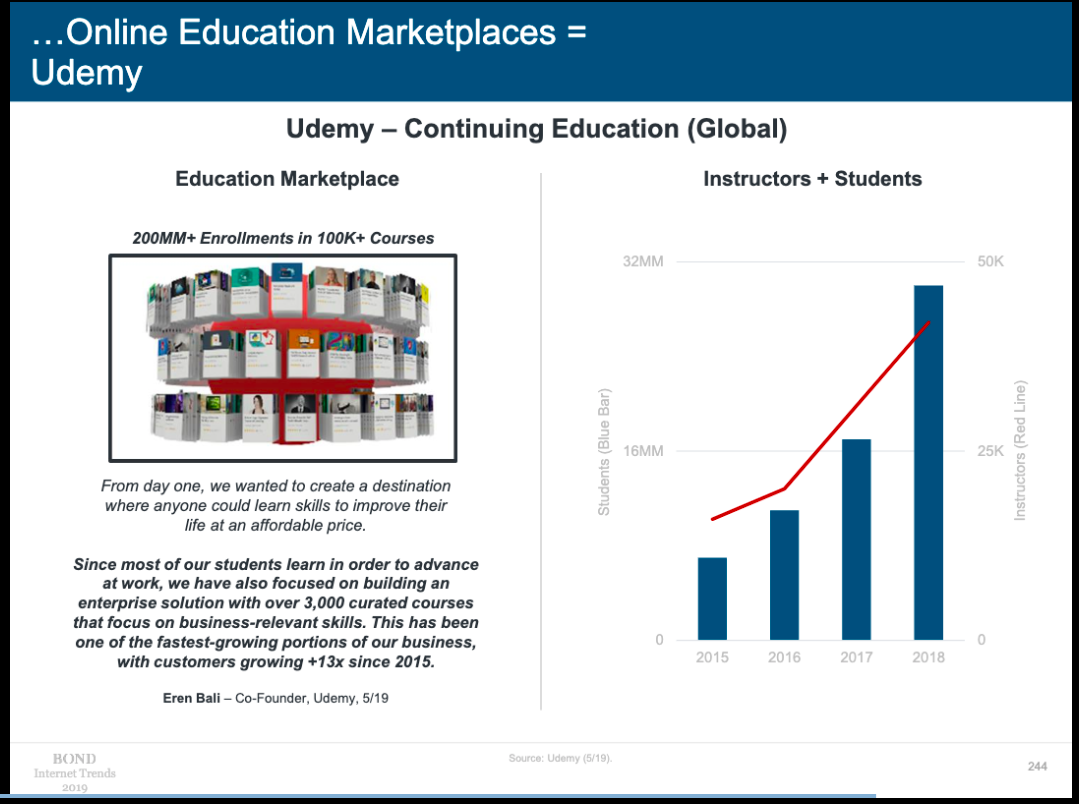
Q24. I’ve never even heard of the Lambda School, have you?
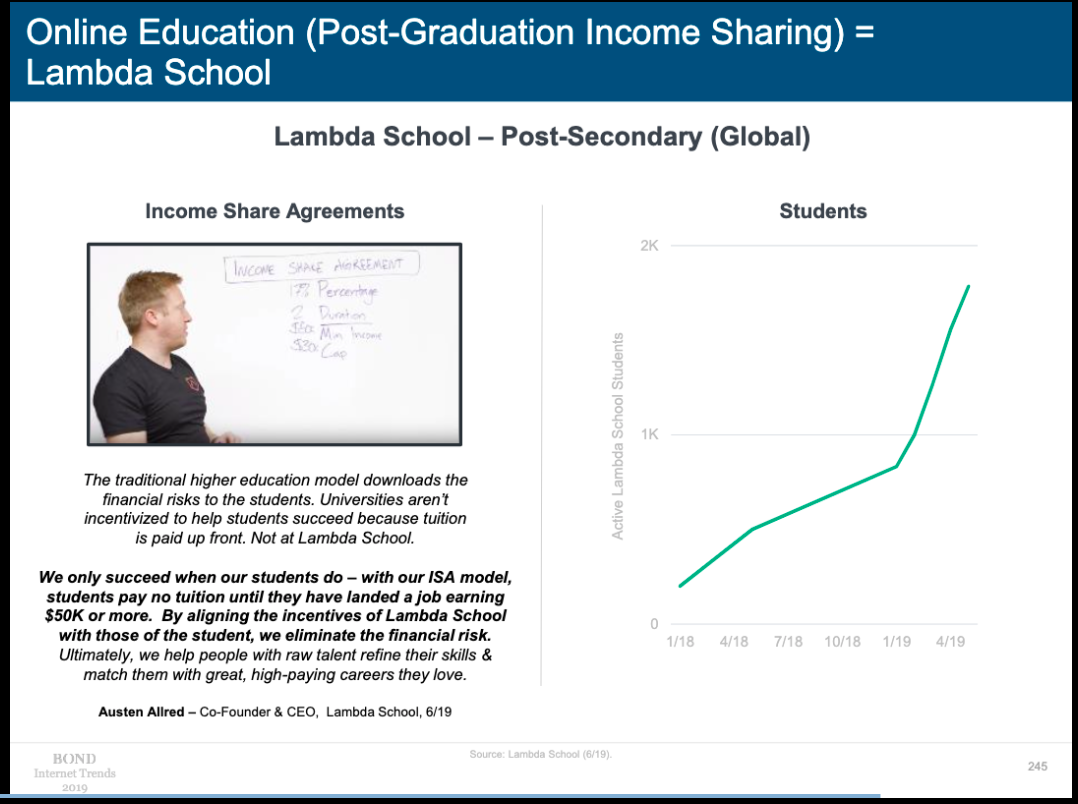
Q25. Is Chegg now an adaptive learning platform? I thought the company did textbook rentals?
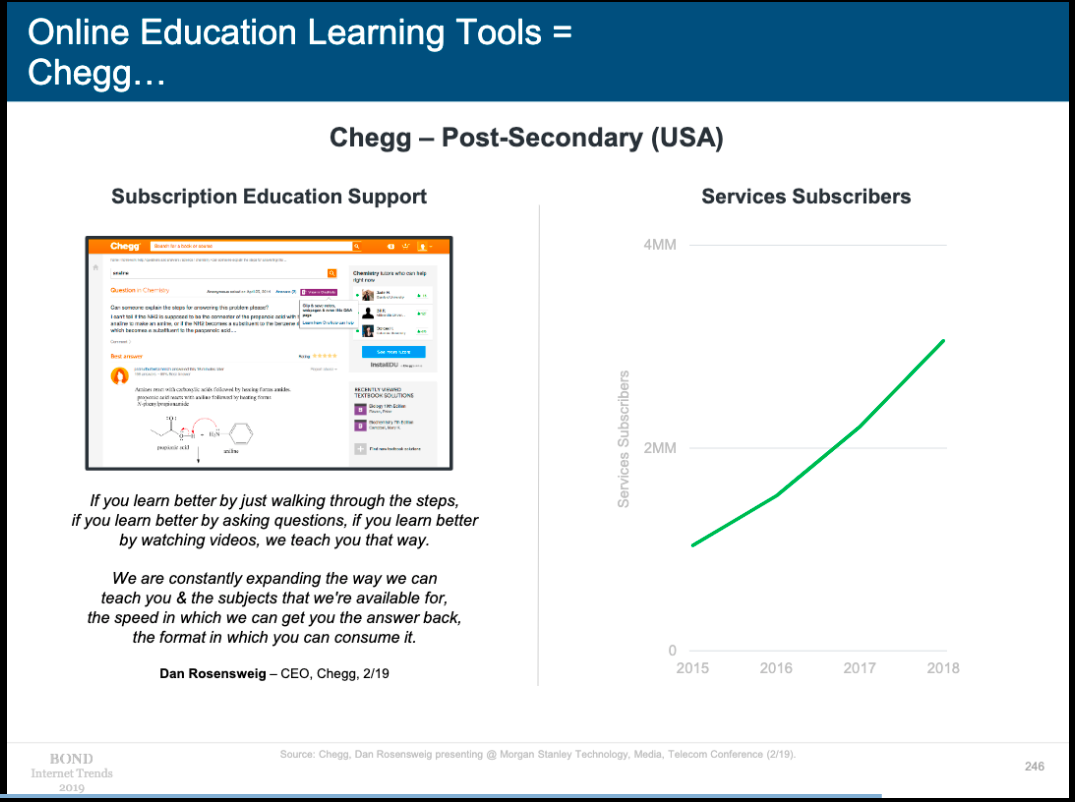
Q26. I tend to think about Quizlet as not really aimed at college students - am I wrong?
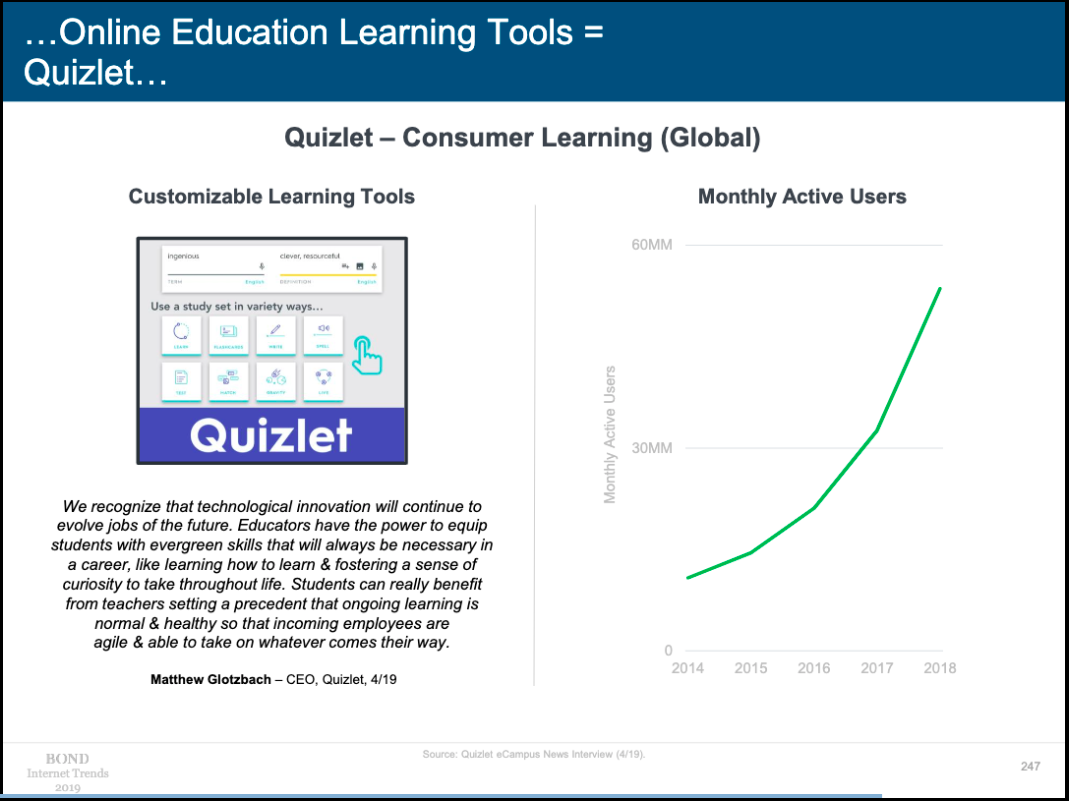
Q27. If YouTube is the world’s largest digital education platform, how come YouTube (and its owner Google) have done so little to focus on higher ed?

Q28. Does this slide make you think that Google will buy Coursera?
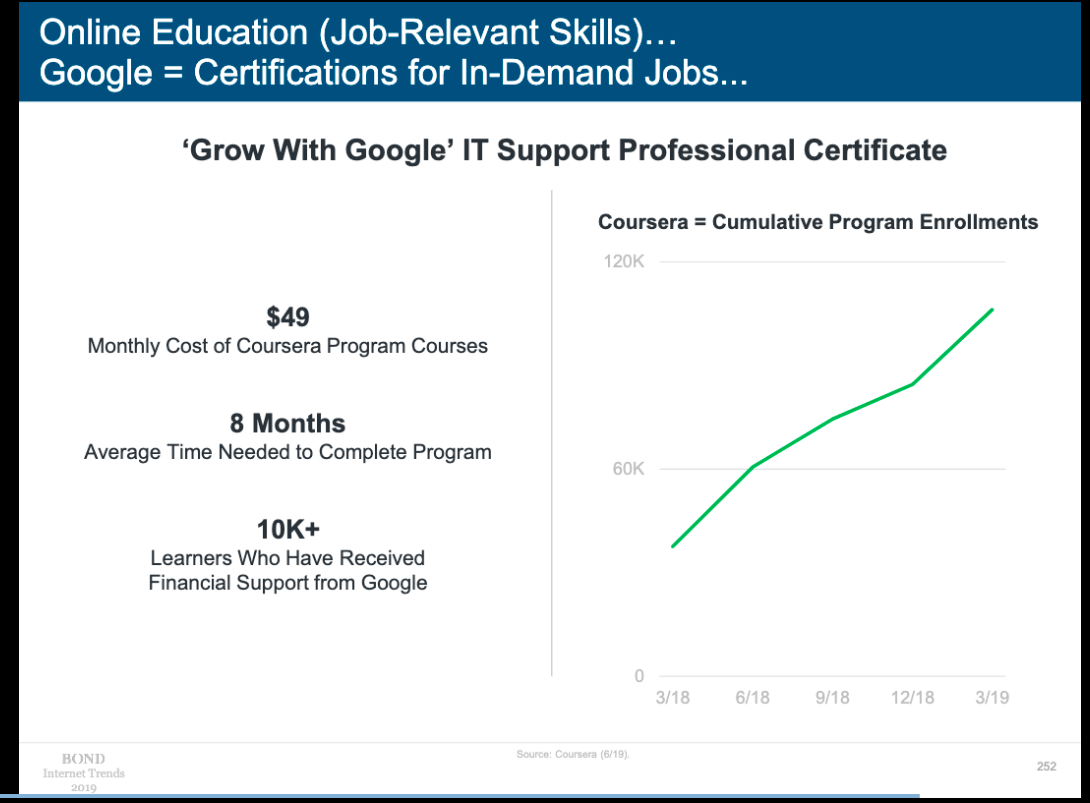
Q29. Is your school offering (or planning to offer) an online course/program in data science?
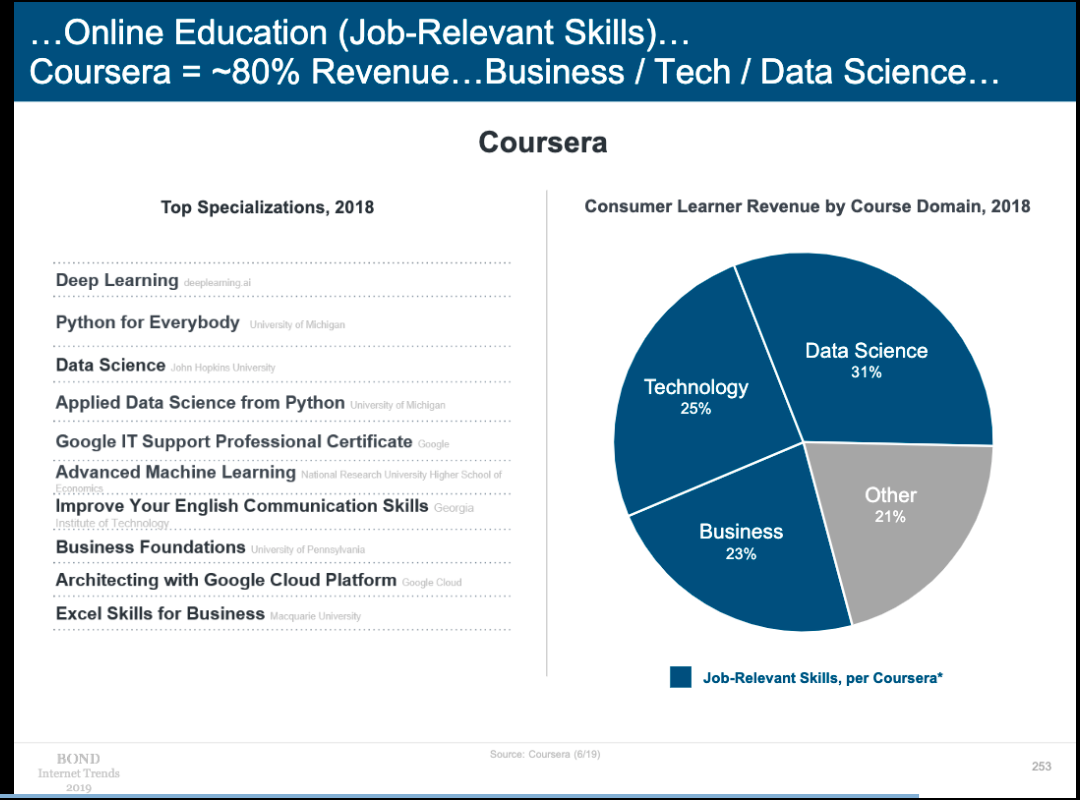
Q30. Is Coursera really better at building partnerships with companies than most universities?
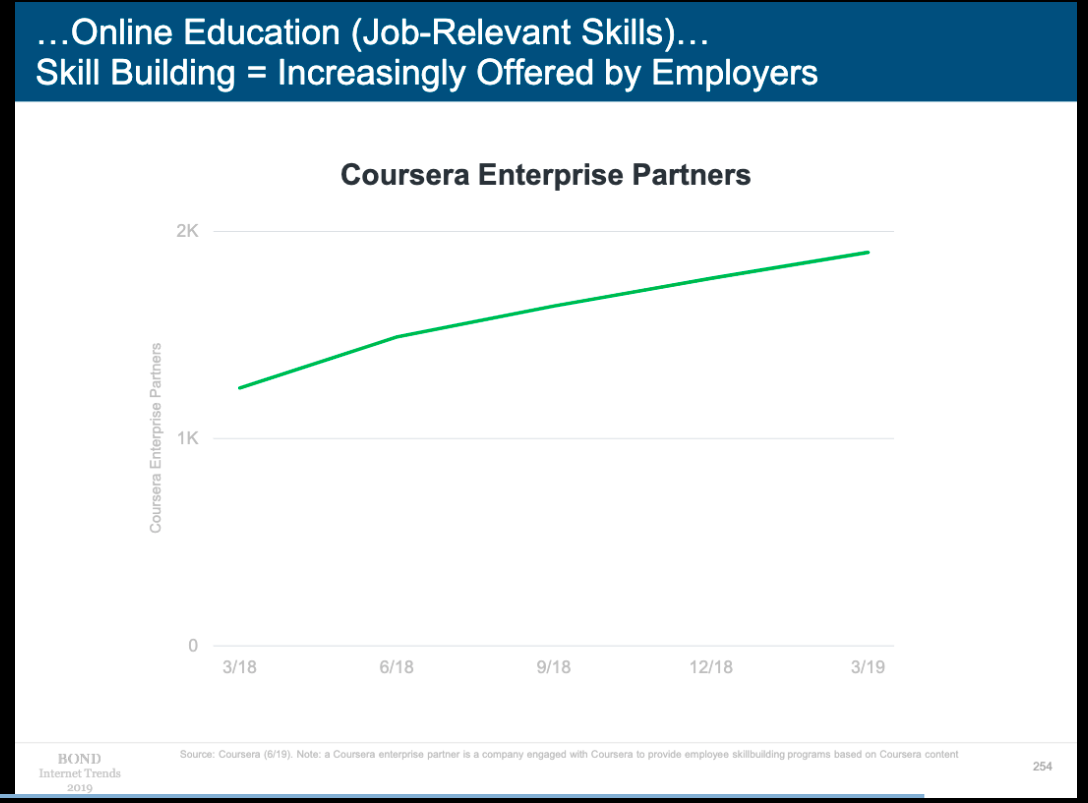
Q31. How do the retention rates of MOOCs that result in degrees cause us to re-think our appraisal of online education at scale?
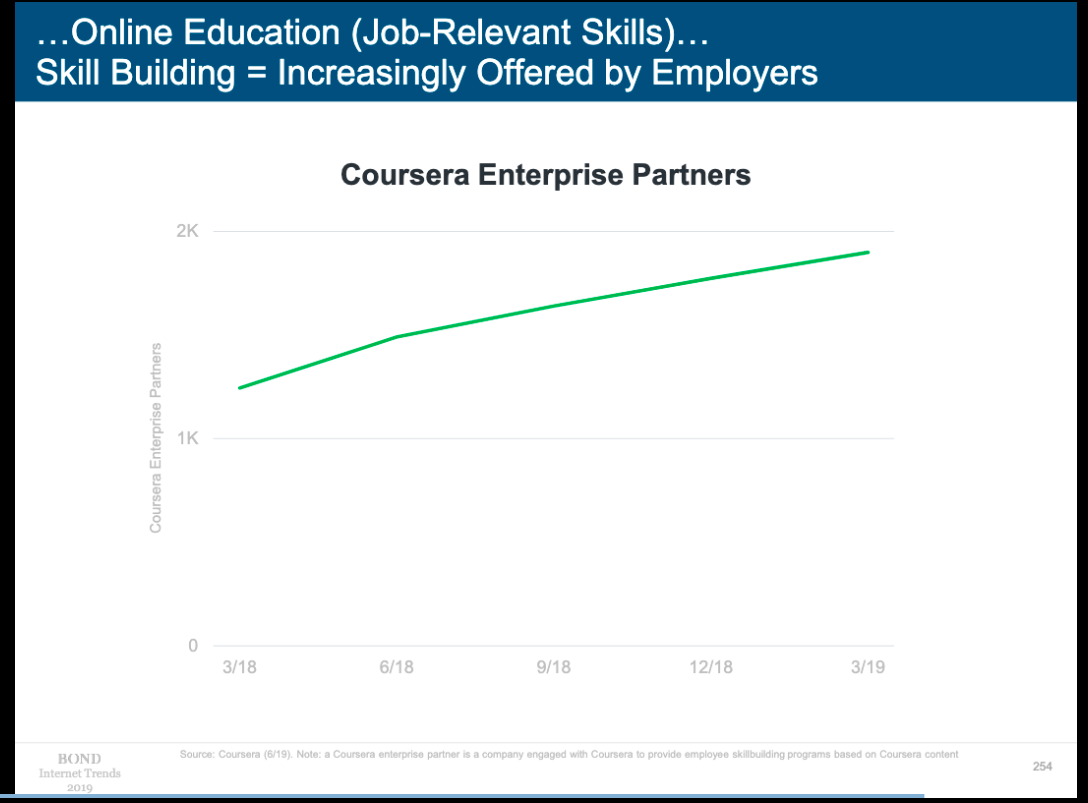
Q32. Will the combination of adaptive learning platforms and online degree programs bend the postsecondary cost curve?
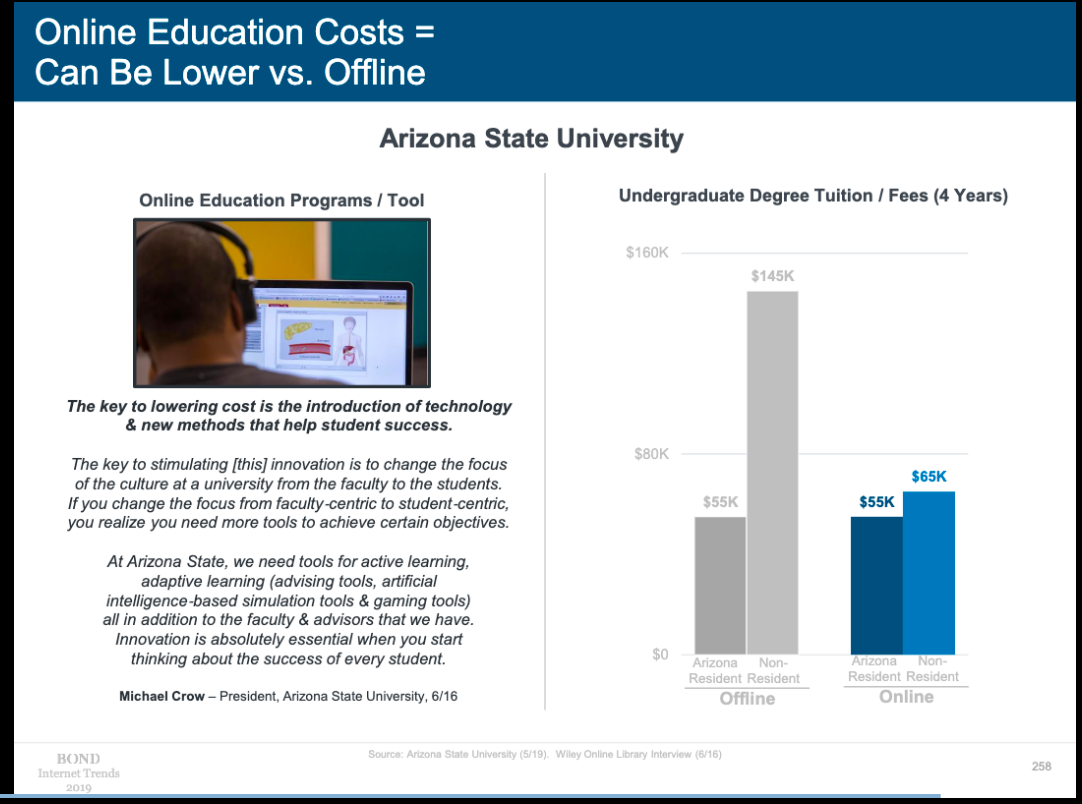
Q33. Will China lead the way to the gamification of mobile learning?
